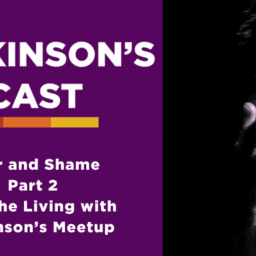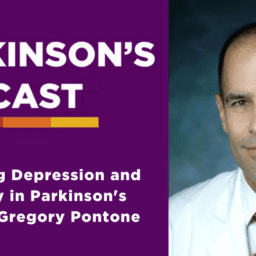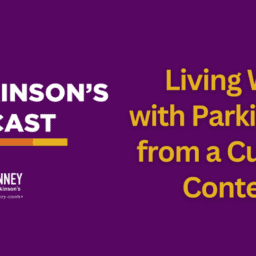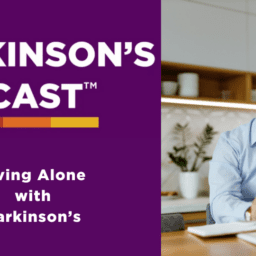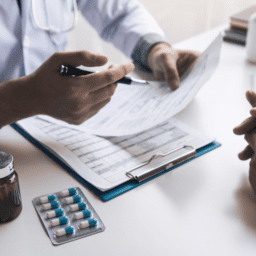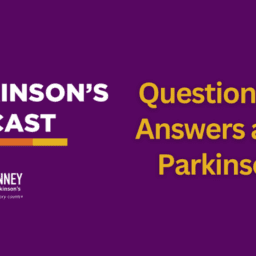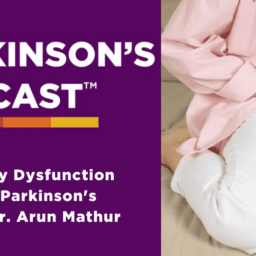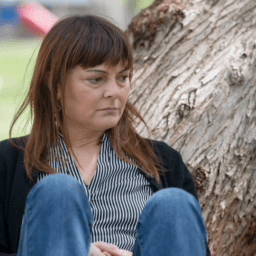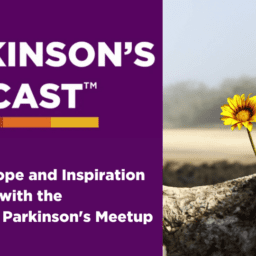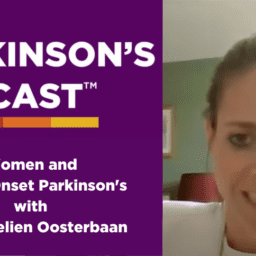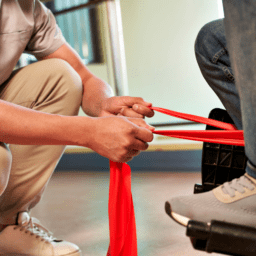Being diagnosed with Parkinson’s at any age can be scary, embarrassing, frustrating, and so many other complicated emotions simultaneously. Being diagnosed with young onset Parkinson’s (YOPD) often makes it even more challenging.
While there is no one-size-fits-all playbook for responding to a YOPD diagnosis, some responses are more productive than others.
but first things first: Take a Breath
The most important thing to do after a YOPD diagnosis is to give yourself time and space to process what you’ve been told. Understand that you don’t have to rush. A YOPD diagnosis does not mean your life is ending. Many people live well with YOPD for many decades, and you can, too. What’s more, know that there is a thriving community of people with Parkinson’s, including many with YOPD, that has your back.
Four Things to Understand about a YOPD Diagnosis
#1 – A YOPD diagnosis is made by clinical observation
At present, there are no tests that can provide a 100% accurate diagnosis of YOPD. Some diagnostic tests can help clarify a suspected or probable diagnosis, but any diagnosis of YOPD is made based on a care provider’s observation of symptoms.
#2 – It’s OK to seek a second opinion
According to a 2022 study, in the US, approximately 160 out of every 100,000 people over 65 will be diagnosed with Parkinson’s. In contrast, 62 out of every 100,000 people over 45 will be diagnosed with Parkinson’s. Johns Hopkins University estimates that only around 20,000 of the approximately 1,000,000 people living with Parkinson’s in the US were diagnosed under 50.
The point is that Parkinson’s isn’t all that common, and YOPD is rarer still, so if you or a care team member doubts your diagnosis, seek a second opinion. The best place to seek a second opinion is often a movement disorder center, and it would be best to consult with the provider at the center who is most familiar with YOPD. You may not have a movement disorder center near you, and if this is the case, talk to other local care providers or call the nearest movement disorder center near you to see if anyone has a recommendation for the right person for you to see. Do you really need to see a movement disorder specialist? Maybe, maybe not.
#3 – Diagnostic Exams Can Help Confirm a Diagnosis
It can be challenging to accept a YOPD diagnosis, and the diagnosis can also be difficult to make. Genetic testing, a DatScan, MRI, and a new SynTap test are all available to help confirm a suspected diagnosis of Parkinson’s. Not all testing options would be advisable for every person or in every situation, and they will not establish certainty about your diagnosis, but these tests are often helpful if your doctor is trying to differentiate between a probable diagnosis of YOPD and an alternative possibility.
#4 – Some providers may recommend you try levodopa to help confirm a diagnosis
To help confirm a diagnosis, a provider may recommend taking levodopa to see if it helps your symptoms. If it helps, this is evidence of dopamine dysfunction, which is a hallmark of Parkinson’s. There is a time-sensitive issue related to this that you should consider, however: some clinical trials exclude people who have taken levodopa or other dopaminergic medication. Often, trials investigating disease-modifying or neuroprotective interventions exclude people who have taken dopaminergic treatments. There are many types of clinical trials, and if there is a possibility that you’d like to participate in them, you may want to ask your care provider whether they think delaying the start of Parkinson’s treatment has any health risks for you.
Five Tips for Living Well after You Receive a YOPD Diagnosis
Once you have confirmed or at least begun to accept your diagnosis, there are five essential steps you can take to help you live well with YOPD.
#1 – Seek Social and Mental Health Support
While your life is not over because of a YOPD diagnosis, it might change. The most likely early changes are in your perception: you might think of yourself, your work, your relationships, your hobbies, or any other part of your life differently. For these reasons, many people with YOPD say that talking with a social worker or a mental health professional was one of the most valuable things they did after their diagnosis.
There are many ways to seek support. You can ask your care team for a referral or search for a provider here. There are also many practices you can try to help improve your mental health. A relationship with a social worker or mental health provider can be a great way to start building your YOPD care team. You may also seek out a YOPD support group. There are online options, and some areas have YOPD-specific groups.
#2 – Exercise
The treatment most heavily investigated as a possible neuroprotective, disease-slowing intervention in Parkinson’s is exercise. Along with eating well and finding a medication that works to control your symptoms, regular physical activity is the best way to improve your quality of life, and it may be the best way to slow the progression of Parkinson’s. Research is ongoing to determine the best exercise “prescription” for people with Parkinson’s, but an excellent place to start is on our exercise resource page.
#3 – Make a communication plan
An important early decision you’ll have to make is how and when you’ll share your diagnosis. You may have different answers for the different people in your life, such as children, parents, members of your extended family, and your employer. A therapist or a social worker can be helpful with these decisions. You might find it helpful to talk about this with other people with Parkinson’s to see how they made these decisions or reach out to one of our Ambassadors.
#4 – Decide when to start treatment
We’ve already mentioned how starting treatment can influence your ability to participate in clinical trials, but starting treatment is an important decision for other reasons. There are reasons to start treatment immediately, and there are reasons some people delay starting treatment.
While you may have other considerations to weigh, some of the reasons people start treatment immediately include the following:
- Their symptoms limit their ability to do what they want
- They don’t want to be aware of their symptoms
- They want to keep their Parkinson’s private
Conversely, some reasons that people with YOPD decide to delay treatment include the following:
- Their symptoms don’t limit them
- They don’t want to start a regular routine of taking pills
- They want to participate in clinical trials for early-stage Parkinson’s
- They’re concerned about side effects
#5 – Examine information thoroughly
If you spend substantial time researching YOPD, you will encounter a wide range of exciting and sometimes frightening ideas. It is critical to evaluate what you hear and read about Parkinson’s very carefully. This is especially true regarding claims on how to treat Parkinson’s. Many ideas about treatments are promoted online with little or no evidence to support them. We have tips about evaluating resources here and here.
Stay Connected
Many people, especially those living with YOPD, strongly connect to their Parkinson’s community. Some even say that a silver lining to being diagnosed with Parkinson’s is that they have found a lifelong community and a host of new friends.
We invite you to connect with us however feels best to you:
- Join us for a meetup.
- Come to one of our events.
- Connect with an Ambassador.
- Reach out to us by email if you have questions or think we can help.
We also encourage you to connect with resources available in your area through a local Parkinson’s organization.
YOPD is challenging for sure, but you aren’t alone. We are here for you.
Additional Resources
YOPD Council: Depression, Anxiety, and Managing “Dark Days”
American Academy of Neurology’s Treatment Guidelines for Motor Symptoms of Early Parkinson’s
Young Onset Parkinson’s Network
WANT MORE PRACTICAL Resources LIKE THIS?
You can learn much more about living well with Parkinson’s today through our Every Victory Counts® suite of resources. Each manual is packed with up-to-date information about everything Parkinson’s. Click the link below to order your manual(s).
Thank you to our 2023 Peak Partners, Amneal and Kyowa Kirin, and our Every Victory Counts Gold Sponsor, AbbVie Grants, for their ongoing support of these must-have manuals. Additionally, we’d like to thank Barbara and Dale Ankenman, Abby and Ken Dawkins, Bonnie Gibbons, Gail Gitin in loving memory of Gene Gitin, Irwin Narter, and Lorraine and J Wilson for their generous donations that allow us to make these resources available and free to all.



